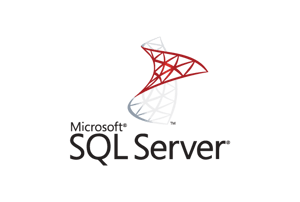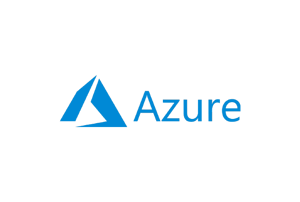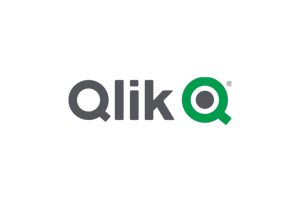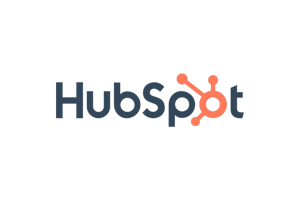DATA ANALYTICS
ADVISORY
We support you in crafting and implementing a holistic data analytics strategy that grants you the ability build a solid data foundation to MANAGE your data, democratize access to data insights, engage in meaningful conversations with your data enabled by CHAT WITH YOUR DATA™️, make well-informed decisions, and execute impactful actions. This approach not only helps you to UNDERSTAND your data, but also uncovers avenues for cost savings, efficiency gains, and improved effectiveness.

OUR DATA ANALYTICS LEAD

RAQUEL MARTINHO - IT'S ALL ABOUT EXPERIENCE
Hands-on problem solver delivering impactful results across marketing, sales, and analytics.










First we assess the current state of the customer's data environment: This would involve analyzing the customer's current data systems and processes to identify any bottlenecks, inefficiencies, or gaps in data management.
After that, we Identify the customer's business objectives: We would work with the customer to understand their business goals and objectives in order to determine how data can be used to support them.
Once the objectives are clear, we develop a data management strategy: Based on the findings of the assessment and the customer's business objectives, we would develop a data management strategy that outlines how to improve data collection, storage, processing, and analysis.
Implementing the strategy: We would work with the customer to implement the data management strategy, which may include implementing new data systems, tools, and processes, or training employees on new data management techniques.
After the successful project, we could help you with monitoring and maintaining the data environment: We would work with the customer to monitor the effectiveness of the new data management systems and processes, and make adjustments as needed to ensure they continue to meet the customer's business objectives.
Providing ongoing support and consulting: If needed, we would continue to provide support and advice to the customer on an ongoing basis to ensure the data management systems and processes continue to meet the customer's needs.
Data democratization refers to the process of making data and its insights accessible to non-technical users within an organization. This concept is built on the idea that everyone, regardless of their technical expertise, should be able to access and understand data to make informed decisions. In essence, data democratization aims to break down the data silos and reduce gatekeeping by specific departments or individuals.
Here are some key points about data democratization:
-
Accessibility: Data is made available to all employees, ensuring they have the information they need to perform their roles effectively.
-
Empowerment: By providing everyone with access to data, employees at all levels can use it to drive decision-making, fostering a culture where everyone can contribute to the company's growth and direction based on factual insights.
-
Self-Service Analytics: Modern tools allow non-technical users to explore, visualize, and derive insights from data without relying on IT or data teams. This boosts agility and reduces the time-to-insight.
-
Improved Collaboration: When data is democratized, departments can more effectively collaborate, as everyone works from a unified data foundation.
-
Data Literacy: For data democratization to be effective, it's crucial to improve data literacy throughout the organization. This ensures that employees understand and interpret the data correctly.
-
Security and Governance: While democratization aims to make data widely accessible, it's equally vital to ensure proper data governance and security measures. This ensures that sensitive information remains protected, and the data used complies with regulations and maintains its quality.
-
Cultural Shift: Data democratization also promotes a shift in organizational culture. It moves away from hierarchical decision-making to a more inclusive approach where insights can come from various levels of the organization.
In summary, data democratization is about ensuring everyone in the organization has access to data and the tools and skills to interpret it. When done right, it can lead to more informed decisions, better collaboration, and a more agile and innovative business environment.
Data Mesh, a decentralized data architecture and organizational approach, can greatly help businesses in becoming truly data-driven. Here's how:
-
Decentralized Data Ownership: Traditional data architectures centralize data ownership, which often leads to bottlenecks and inefficiencies. With Data Mesh, ownership is distributed among domain-oriented teams. This empowers teams to be more agile and responsive, ensuring they have the data they need when they need it.
-
Enhanced Data Discoverability: Data Mesh promotes the use of a standardized and discoverable data platform. This makes it easier for teams across the organization to find, understand, and use the right data for their needs, thus promoting data-driven decisions at all levels.
-
Improved Data Quality: As domain teams have a clearer understanding of their data's context and use cases, they're better positioned to ensure its quality. High-quality data is essential for accurate insights and confident decision-making.
-
Scalability: Traditional centralized architectures might not scale efficiently as data volume and variety grow. Data Mesh's decentralized approach is designed for scalability, accommodating growth without compromising performance.
-
Reduced Time-to-Insight: By reducing data silos and promoting interoperability, Data Mesh can significantly reduce the time it takes to derive insights from data. Faster insights mean quicker, more informed decisions.
-
Cultural Shift: Data Mesh not only introduces a technical shift but also fosters a cultural change. It encourages collaboration across domains, emphasizes data as a shared asset, and promotes data responsibility. This cultural evolution is crucial for an organization to be genuinely data-driven.
-
Innovation Boost: By democratizing data access and reducing barriers, teams can innovate more freely, experimenting with data to derive new insights, propose fresh strategies, and introduce novel solutions.
-
Enhanced Compliance and Security: With clear data ownership and domain-specific understanding, it's easier to implement the right data security measures and ensure compliance with relevant data protection regulations.
-
Cost Efficiency: By reducing redundancy and optimizing data operations, Data Mesh can lead to more cost-effective data management. You're only storing, processing, and transmitting what's necessary.
-
Future-Proofing: The principles of Data Mesh are inherently adaptable. As the data landscape changes — with new sources, technologies, and challenges emerging — a Data Mesh architecture can adapt without requiring an overhaul.
In summary, Data Mesh can act as the foundation for an organization's data-driven transformation, addressing both the technical and cultural aspects necessary for this evolution. By promoting clear ownership, interoperability, and a collaborative mindset, Data Mesh positions an organization to harness its data's full power.
Integrating data from multiple sources and systems can give a comprehensive view of business performance by providing a more complete picture of, for example, customer behavior and marketing campaign effectiveness.
Analytics can identify opportunities for cost savings and efficiency gains by identifying inefficiencies, for example, in marketing operations and identifying areas where resources can be reallocated.
Data can be used to optimize marketing strategies and tactics by identifying patterns and trends in customer behavior, and using that information to make informed decisions about targeting, messaging, and channel mix.
We can help you to track and measure the effectiveness of marketing campaigns by using metrics such as click-through rates, conversion rates, and revenue generated.
We can also help you to track the customer journey and use A/B testing to optimize campaigns.
Customer retention and loyalty can be improved by using analytics to understand customer needs and preferences, and by implementing targeted retention campaigns and loyalty programs.